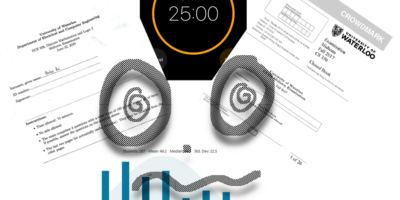We live in horrifying times. There are plenty of things to be frightened of. Tragedies are happening all the time, all over the world. There are even problems so great, that they bring civilization’s very survival into question.
WiFi network naming is not one of these problems.
Network and device names should not be limited. Firstly, because it’s a violation of freedom of speech. People have the fundamental right to speak, write and otherwise express their thoughts without fear of being punished by the government. This often leads to tasteless, hateful and otherwise unintelligent speech, that is true. Yet whenever freedom of speech is limited, a heavy question arises: who gets to decide which speech is allowed and which speech is banned? “Common sense” offers no relief in this regard: at times it seems much rarer as its trite moniker might suggest.
Perhaps naming a WiFi network “Al Qaeda Free Terror Network[sic]” is a bit of a stretch of free speech. Isn’t it dangerous? Once again, however, the question of who chooses the networks to ban become tricky. There are all sorts of objectionable names all over the place, from devices to media to haphazardly translated placards.
Airports are different of course: joking about bombs can actually land people in jail. Indeed, pilot Elwood Menear was once arrested for asking a security screener why he was “worried about tweezers when I could crash the plane?” The pilot was certainly correct, and also certainly offensive enough to prompt a later investigation by the FBI.
However passengers trading wise-cracks with security guards are in a very different position than the still-uncaught network-naming fellow. The prospect of a bomb in a suitcase is at least believable. The idea that “Al Qaeda” would not only need to create a WiFi network, but also name it after themselves, is absolutely ludicrous. There are more discreet ways of remotely activating bombs than using a public WiFi network: if terrorists ever used WiFi before, they can probably switch to whatever other tool fills their needs. Obviously, the prospect of terrorists naming a WiFi network after themselves is too self-defeating to believe: either the WiFi name was meant to be horrifying on its own, or the whole issue was a prank.
If terrorists actually needed a WiFi network for something, the response at LAX bodes badly for airport security. The person who hosted the “Al Qaeda Free Terror Nettwork” was never found, despite the fact that a flight was delayed for hours looking for the culprit. This is another obvious issue with trying to regulate device and hotspot names: such regulation will be difficult to enforce. Thousands of people pass through major airports every day, and these days the majority of them will likely carry smartphones with them. In addition, these people are squeezed into long lines and skinny economy class seats. Unlike the 2009 underpants bomber, a rogue hotspot host would probably not behave suspiciously enough to be noticed by passengers or flight attendants. How could anyone realistically be punished for an offensive hotspot name?
The ineffective search took several hours, during which passengers of United Airlines flight 136 had to keep their electronics turned off and wait quietly. They were rescreened for “derogatory information”. It eventually turned out the hotspot was based in the airport and not in the plane. After that, the crew “timed out” and had to be replaced. At the end of this security theatre, the plane took flight over 13 hours after its scheduled departure time.
Did the passengers really deserve to be screened and delayed due to a WiFi network name? Of course not, because the idea that an actual terrorist attack would occur was dubious from the start. They missed out on valuable time working, travelling, and being with their families because of some moronic prankster. This is of course after all the standard security check annoyances inherent to air travel.
What is perhaps the biggest problem of limiting device names it that it is simply caving in to paranoia. If it only takes a hotspot rename to ground a flight, how much more will we let our fear disrupt us? How many safeguards will we accept? How many liberties will we sacrifice on the altar of security? How many more investigations and screenings will be run on ridiculous, possibly imaginary threats?
If we are willing to keep hundreds of people waiting for hours in an aluminum tube due to a hotspot name, it would be trivial to shut down our entire society. There’s hardly a need for bombs: fear is the greatest weapon of all.




Leave a Reply